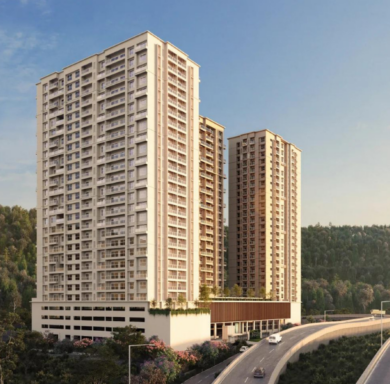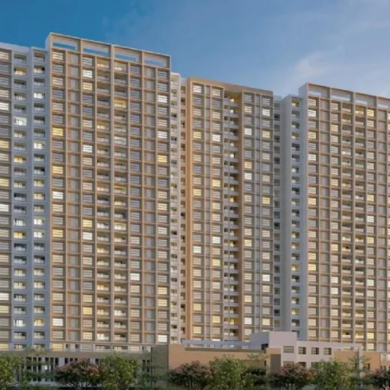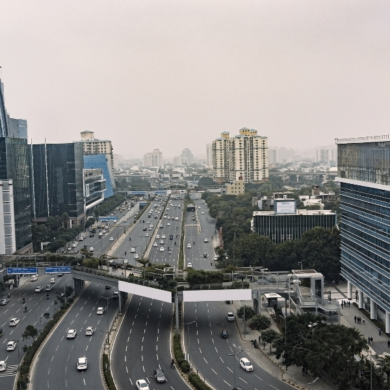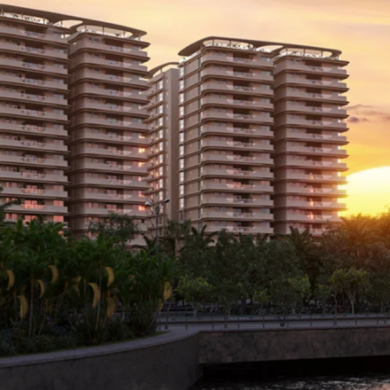
The future of the real estate market in India is expected to be promising, with dynamic changes shaped by emerging technologies, socio-economic factors, and pivotal trends. This transformation is set to redefine how properties are bought, sold, and inhabited – shaping a new landscape for India’s real estate sector.
As we stand at the crossroads of technological innovation, demographic shifts, and evolving economic landscapes, the real estate market in India is poised for a transformative journey. The traditional paradigms that have long governed the sector are undergoing a profound metamorphosis, ushering in a new era of possibilities and challenges.
The future of real estate in the country is not just a matter of brick and mortar; it is a narrative of innovation, sustainability, and adaptability. Let’s embark on a journey to unravel the multifaceted layers of India’s real estate sector, exploring the exciting possibilities poised to shape the nation’s skyline in the years to come.
Table of Contents
Real Estate Trends in 2023 in India
Real estate trends in India for 2023 are influenced by various factors.
- Technology integration remains a prominent theme, with the industry embracing virtual reality for property tours and online transaction platforms
- Affordable housing continues to be a key focus, driven by government initiatives like Pradhan Mantri Awas Yojana, catering to the increasing demand in this segment
- Co-working spaces are gaining popularity due to the evolving nature of work and the rise of remote employment
- Sustainability is becoming a priority, leading to increasing adoption of green building practices
- Real Estate Regulatory Authority (RERA) has contributed to increased transparency and accountability in the sector
- Government policies and reforms are also expected to be pivotal in shaping the real estate landscape in 2023
Indian Real Estate Market Overview: 2024 And Beyond
The real estate market in India for 2024 and beyond is expected to be shaped by a combination of economic factors, government policies, and technological advancements. The overall economic conditions, GDP growth, and employment levels will influence real estate activity. Continued government initiatives, such as housing schemes and regulatory measures, will also significantly impact the market – shaping demand, supply, and investor sentiment.
The ongoing integration of technology – especially in PropTech – will streamline transactions, enhance customer experiences, and transform property management practices. Sustainability is anticipated to remain a key focus, with a growing emphasis on green building practices.
The evolving nature of work, with an increasing acceptance of remote and flexible arrangements, could influence the demand for residential and commercial spaces – impacting the growth of co-working and flexible office spaces. Successful adaptation to market shifts and changing consumer preferences will be crucial for developers and investors navigating India’s dynamic real estate landscape in 2024 and beyond.
Emerging Technologies in Real Estate in India
PropTech, integrating technology into real estate, is a crucial driver of innovation. Virtual and augmented reality applications enhance the property viewing experience, allowing potential buyers or tenants to explore properties remotely. Additionally, artificial intelligence (AI) is used for data analysis, enabling more accurate market predictions and property valuations.
Blockchain technology is gaining traction for its potential to enhance transparency and security in real estate transactions. Smart building technologies incorporating Internet of Things (IoT) are becoming more prevalent – offering features like energy efficiency, automated maintenance, and enhanced security in residential & commercial spaces.
Furthermore, the adoption of 3D printing in construction is on the horizon, potentially revolutionising the building process by allowing for cost-effective, rapid construction of structures. The convergence of these technologies is reshaping the real estate landscape – offering new opportunities for efficiency, sustainability, and enhanced user experiences.
Regional Variances and Changing Consumer Behaviour
Regional variances and changing consumer behaviour play a significant role in shaping the real estate market dynamics in India. Distinct cultural, economic, and demographic differences across regions influence how people approach real estate.
Regional Variances
Regional economic disparities impact property prices and demand. Metropolitan areas and tier-1 cities often experience higher property values due to increased economic opportunities, while tier-2 and tier-3 cities may offer more affordable housing options.
State-specific policies and regulations further contribute to regional variations in the real estate landscape. For instance, states with favourable business climates may witness increased commercial real estate development.
Changing Consumer Behaviour
Influenced by evolving lifestyles, demographics, and technological advancements, the changing consumer behaviour impacts the real estate sector in India. The younger generation is more inclined towards urban living and technologically driven solutions; hence may prefer smart homes and properties near urban centres. The demand for sustainable and eco-friendly housing options is also rising, reflecting changing environmental consciousness.
The shift towards remote or hybrid work – accelerated by global events such as the COVID-19 pandemic – has altered preferences for residential locations. Homebuyers may prioritise properties with dedicated workspaces or those in suburban or semi-urban areas, offering a better quality of life.
Future of Commercial Real Estate in India
The future of commercial real estate in India is marked by dynamic shifts influenced by the rise of remote work, increased emphasis on sustainability & wellness, and the integration of advanced technologies such as IoT & AI. Driven by e-commerce, the evolution of retail sector may lead to the adaptive reuse of vacant spaces for alternative commercial purposes.
Logistics & distribution centres are expected to experience growth in line with the expanding e-commerce landscape. The demand for flexible office spaces and co-working environments will likely persist, reflecting a need for agile real estate solutions. The trajectory will be shaped by a combination of global economic factors, technological advancements, and the industry’s ability to adapt to changing business dynamics.
Future of Residential Real Estate in India
The future of residential real estate in India will be influenced by various trends & shifts in societal preferences, technological advancements, and economic dynamics. With the increasing adoption of remote work, there might be a continued demand for homes that accommodate flexible workspaces and enhanced connectivity.
Sustainability will likely remain a key focus, with growing interest in eco-friendly and energy-efficient housing solutions. Technological integration, including smart home features and virtual reality for property tours, is expected to significantly shape the home-buying experience. Additionally, affordable housing will likely be a persistent concern, prompting government initiatives and innovative solutions to address the housing needs of different income groups.
Future Projections and Market Predictions
The future projections and market predictions for real estate in India hinge on a complex interplay of economic conditions, interest rates, demographic trends, government policies, technological advancements, global events, environmental considerations, cultural shifts, and supply-demand dynamics. Economic growth, employment rates, and inflation will also influence residential and commercial property markets.
Additionally, the direction of interest rates, advancements in PropTech, and the impact of global and geopolitical events can significantly shape the trajectory of real estate markets. Sustainable and eco-friendly practices, as well as changing lifestyle preferences, will also contribute to evolving market demands. Continuous monitoring of these multifaceted factors and consultations with real estate professionals & market analysts are crucial for informed assessments of future trends in the real estate sector in India.
Is Real Estate in India a Good Investment for the Future?
The potential of real estate as an investment for the future is contingent on several factors. Historically, real estate has demonstrated good appreciation, provided steady income through rentals, and served as a tangible asset offering diversification and an inflation hedge. However, a successful investment depends on market conditions, timing, and local dynamics.
Real estate investments may need more liquidity than other assets, and managing rental properties involves responsibilities and potential challenges. External factors like economic conditions and regulatory changes can impact market risks. Thorough research, understanding personal financial goals, and consulting with professionals are essential for making informed investment decisions in the dynamic real estate landscape of India.
Must Read: How to Invest in Real Estate in India?
Comparative Analysis with Top Global Real Estate Markets
Factors |
Indian Real Estate Market |
Global Real Estate Markets |
| Economic Conditions | Influenced by domestic growth, inflation, and employment trends. Demographic factors and urbanisation impact housing demand. | Diverse economic conditions globally, ranging from stable growth in developed economies to faster but volatile growth in emerging markets. |
| Regulatory Environment | Governed by Real Estate (Regulation & Development) Act (RERA) and other regulations. Tax policies play a significant role. | Regulatory frameworks vary. Some countries have stringent regulations to enhance investor confidence, while others may be more relaxed. |
| Cultural and Demographic Factors | Cultural preferences and demographic shifts influence housing demands. Joint family systems impact property preferences. | Cultural differences in family structures, lifestyle preferences, and urban planning contribute to variations in property types and development trends. |
| Foreign Direct Investment (FDI) | Efforts to attract FDI in real estate through policy reforms. FDI regulations impact international investment. | FDI regulations and incentives vary globally, affecting the level of international investment in real estate. |
| Market Maturity | Dynamic and experiencing significant growth, particularly in urban centres. Considered emerging compared to more mature markets. | Developed markets have more established and stable real estate sectors, while emerging markets offer higher growth potential with higher risks. |
| Technology Integration | PropTech adoption increasing, with technologies like virtual reality and artificial intelligence impacting transactions and marketing. | Developed markets often lead in adopting advanced PropTech solutions, contributing to streamlined and efficient real estate processes. |
Final Thoughts
The future of the real estate market in India is expected to be full of dynamic and transformative changes, shaped by a confluence of factors ranging from technological advancements to evolving consumer preferences. The integration of PropTech – including virtual reality, artificial intelligence, and blockchain – promises to redefine how transactions are conducted. PropTech will make the process more transparent, efficient, and user-friendly.
The rise of remote work and changing lifestyles are influencing the demand for properties that offer flexible workspaces, eco-friendly features, and smart home solutions. Moreover, government initiatives such as affordable housing schemes and regulatory reforms like RERA contribute to a more accountable and sustainable real estate sector.
The market will witness increased focus on sustainability, with green building practices gaining prominence. Investors and stakeholders will need to navigate these changes strategically, understanding local nuances and embracing innovative approaches.
While challenges such as market fluctuations and regulatory complexities exist, so do opportunities for growth, innovation, and meeting the evolving demands of a dynamic society. The future of real estate in India is not just about constructing buildings; it is about building communities, embracing technology, and creating spaces that resonate with the changing aspirations of the nation.
seems this section is written as futuristic prospective. As 2023 is the current year and its going to end soon, so write this on present tense, other sections can be covered as futuristic prospective.
Related Blogs To Know More on Real Estate Trends in Various Parts of India
Bangalore Real Estate Market Trends 2023
Chennai Real Estate Market Trends 2023
Hyderabad Real Estate Market 2023 & Beyond
Understanding the Real Estate Market in Thrissur
Understanding The Real Estate Market in Trivandrum for Flat Buyers
FAQs
1. What is the forecast for the Indian real estate market in 2025?
The forecast for Indian real estate market in 2025 is that it will contribute to 13% of India's GDP. Trends suggest continued focus on PropTech integration, sustainable practices, and changing consumer preferences.
2. What is the future of real estate in India in 2030?
Real estate market in India in 2030 is projected to reach $1 trillion. Trends indicate increased technology adoption, growing emphasis on sustainable & smart buildings, and development of affordable housing. The industry is expected to adapt to changing demographics and evolving work patterns.
3. Does real estate have a future in India?
Yes, real estate has a significant future in India. The sector has been dynamically adapting to market trends, government reforms, and technological advancements. With a growing population, rapid urbanisation, and evolving lifestyles, real estate will continue to play a crucial role in providing housing and commercial spaces.
4. Is it a good time to buy a house in India 2023?
Yes, it is a good time to buy a house in India in 2023, and the decision depends on factors such as personal financial stability, market conditions, and individual goals. Consulting with real estate professionals and studying market trends can help make an informed decision.
5. What is the prediction of the real estate market in India?
Prediction of the real estate market in India varies based on economic conditions, policy changes, and global factors. Overall, trends suggest a focus on technology, sustainability, and affordable housing – with the market adapting to changing consumer preferences.
6. Will property rates go down in 2023 in India?
Property rates in India may not go down in 2023 in India. However, predicting property rates involves various factors, and market fluctuations can occur at any point of time.
7. Will property prices fall in 2024 India?
Property prices might not fall in 2024 in India. Instead, they are expected to rise by 5%. However, markets can fluctuate over time, and it is difficult to accurately predict if property prices will fall.










